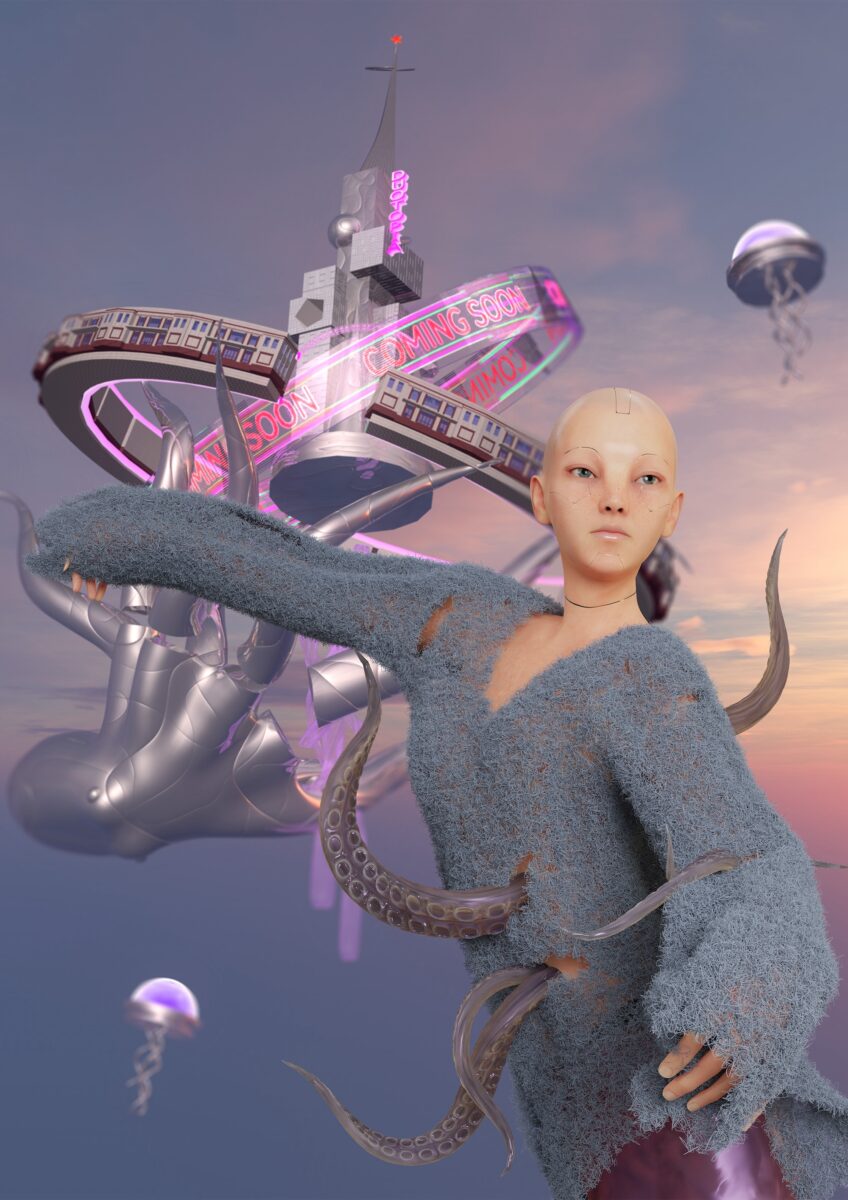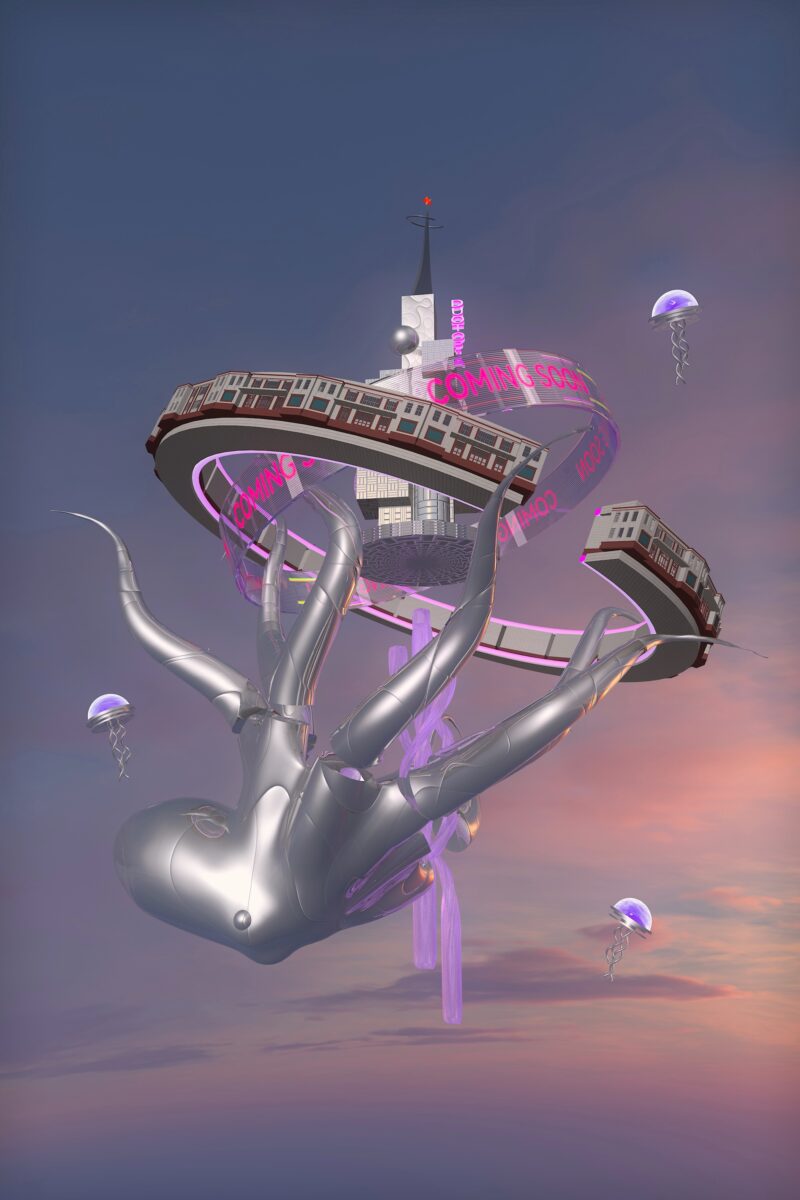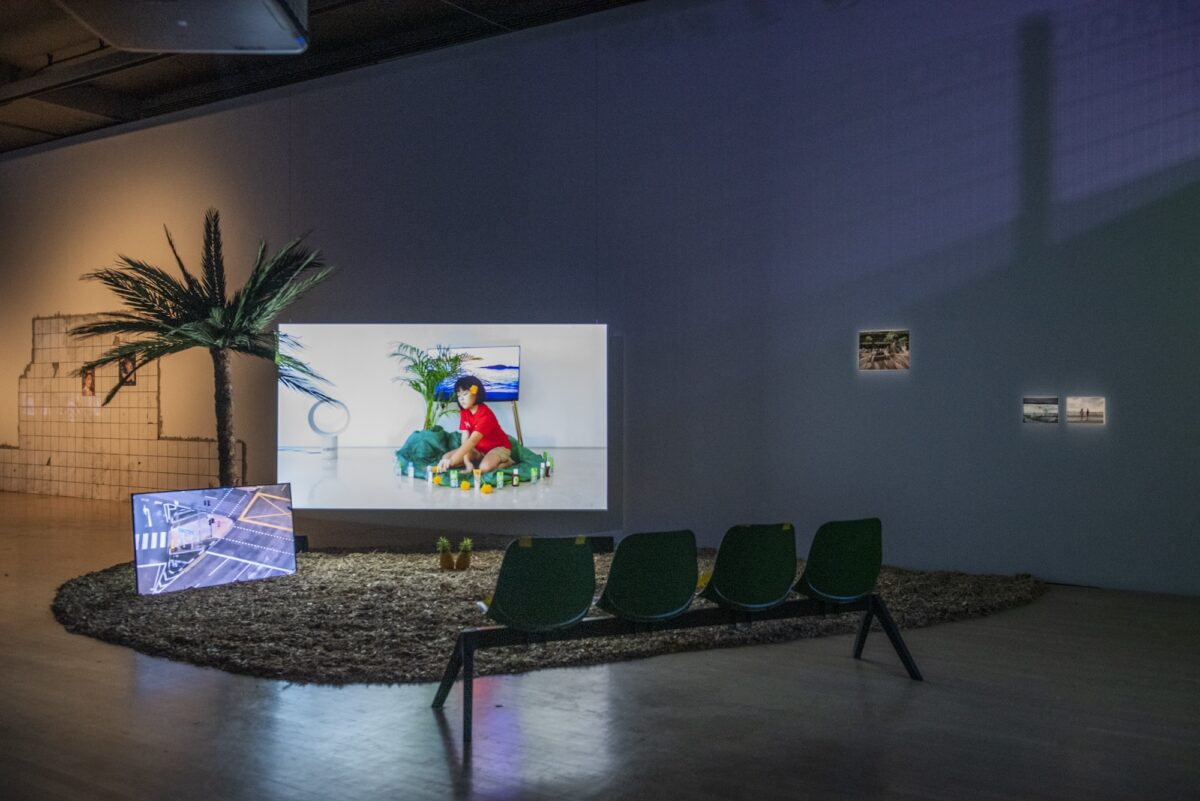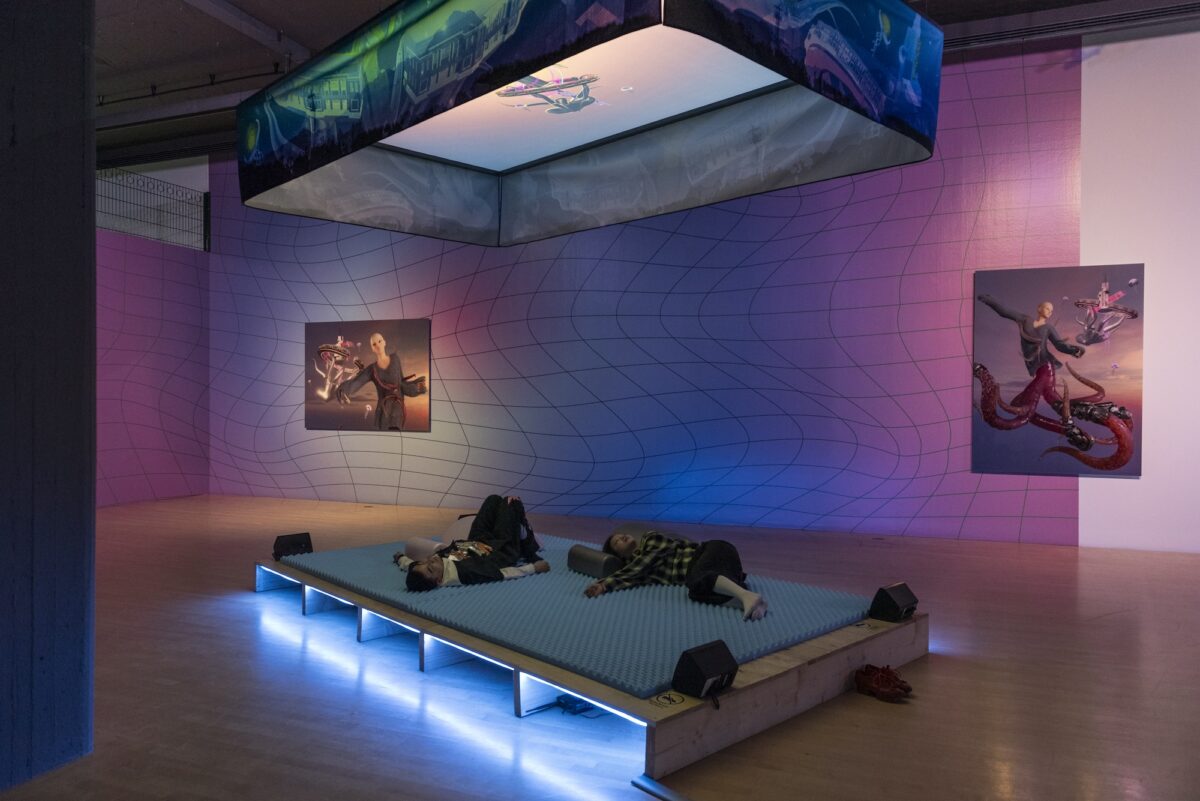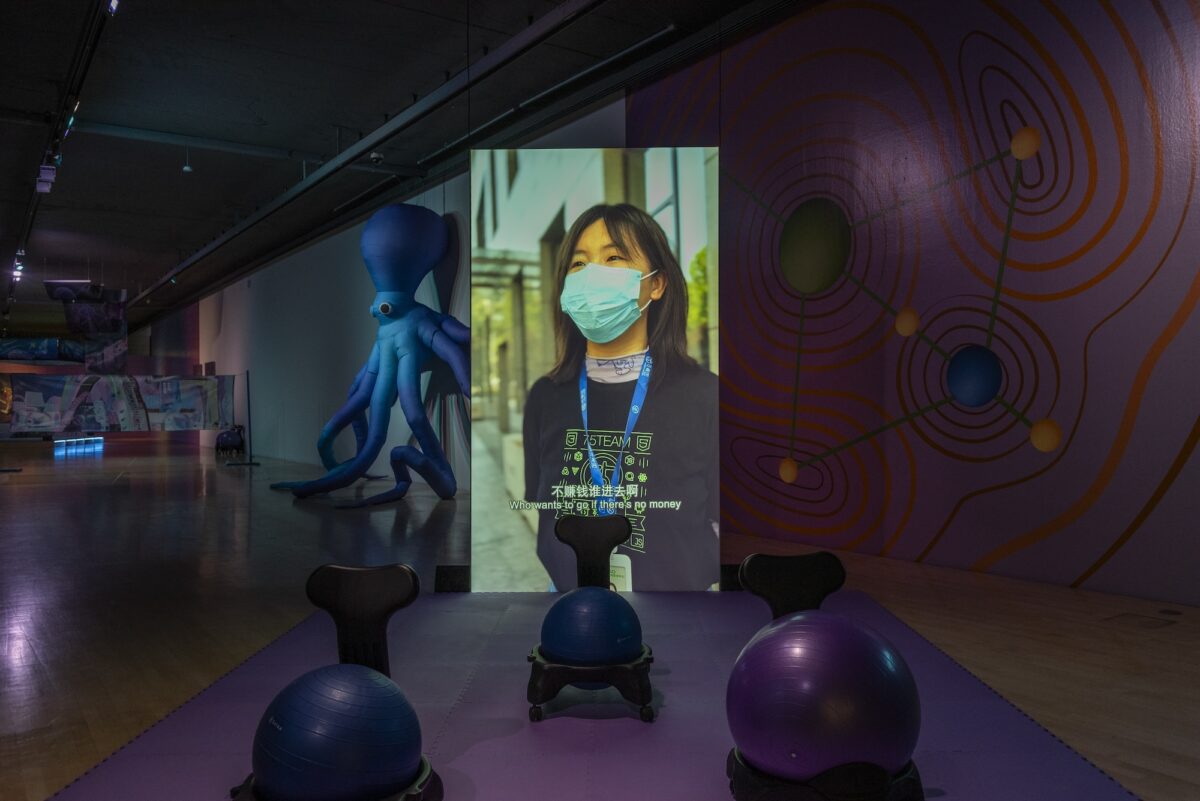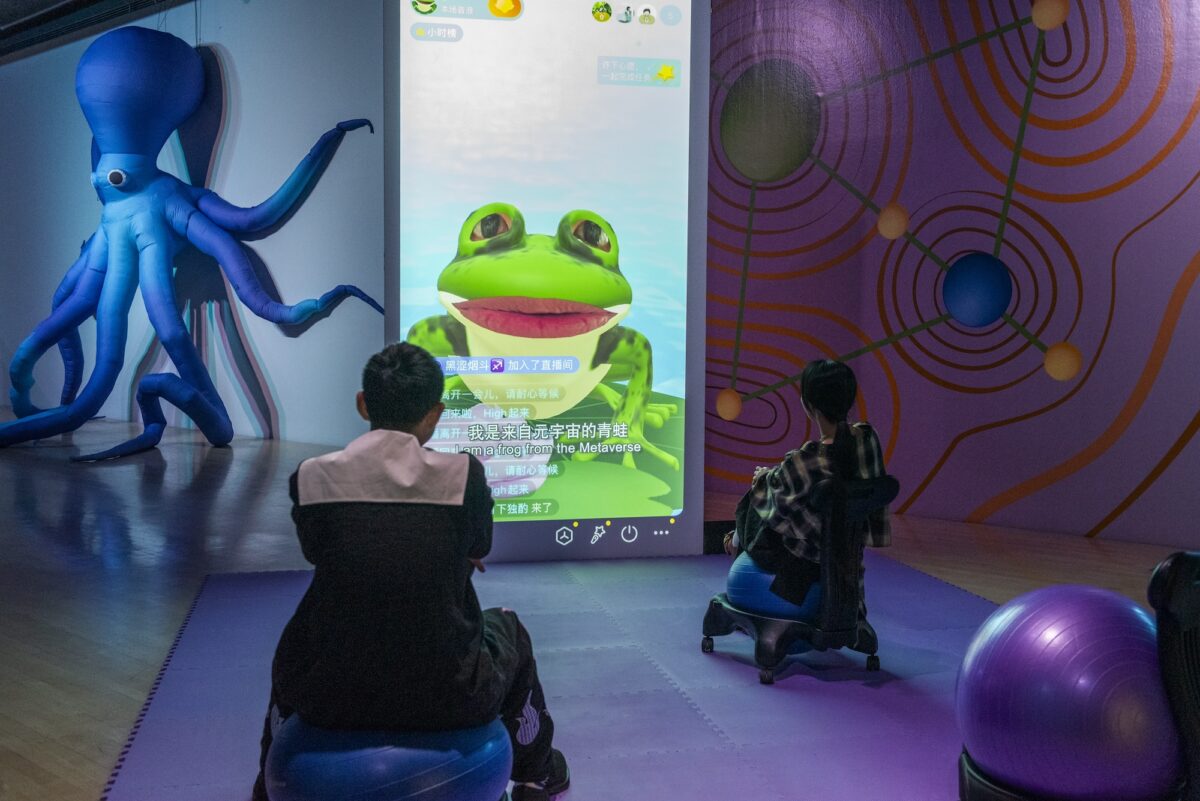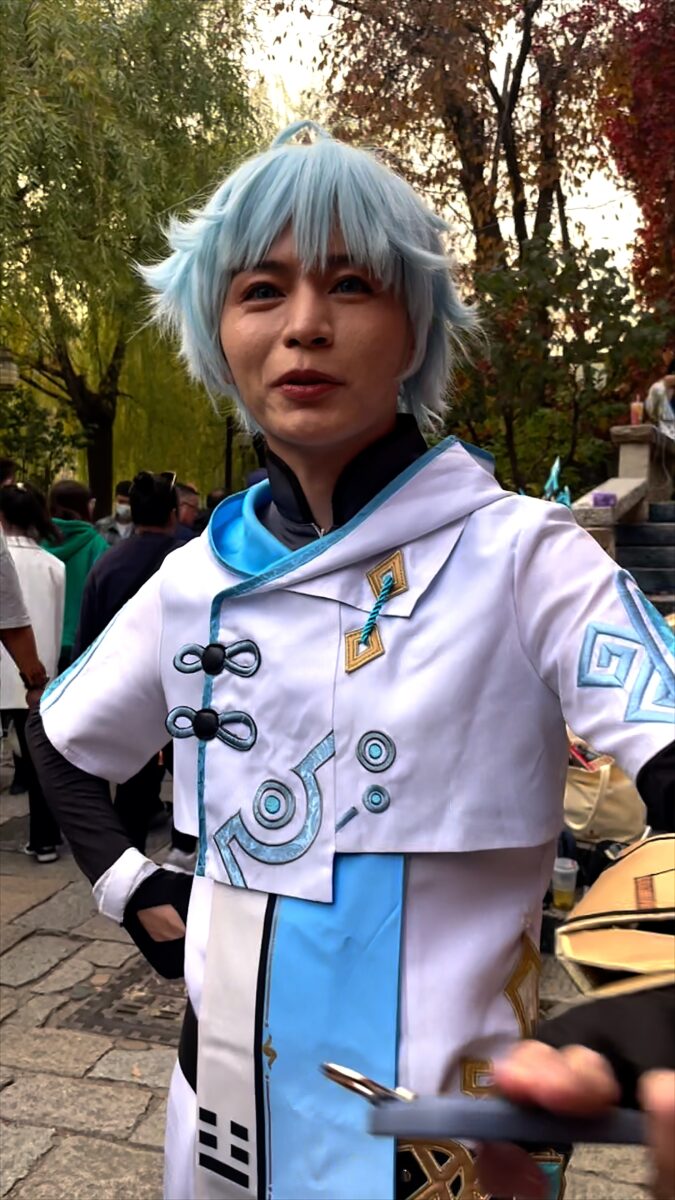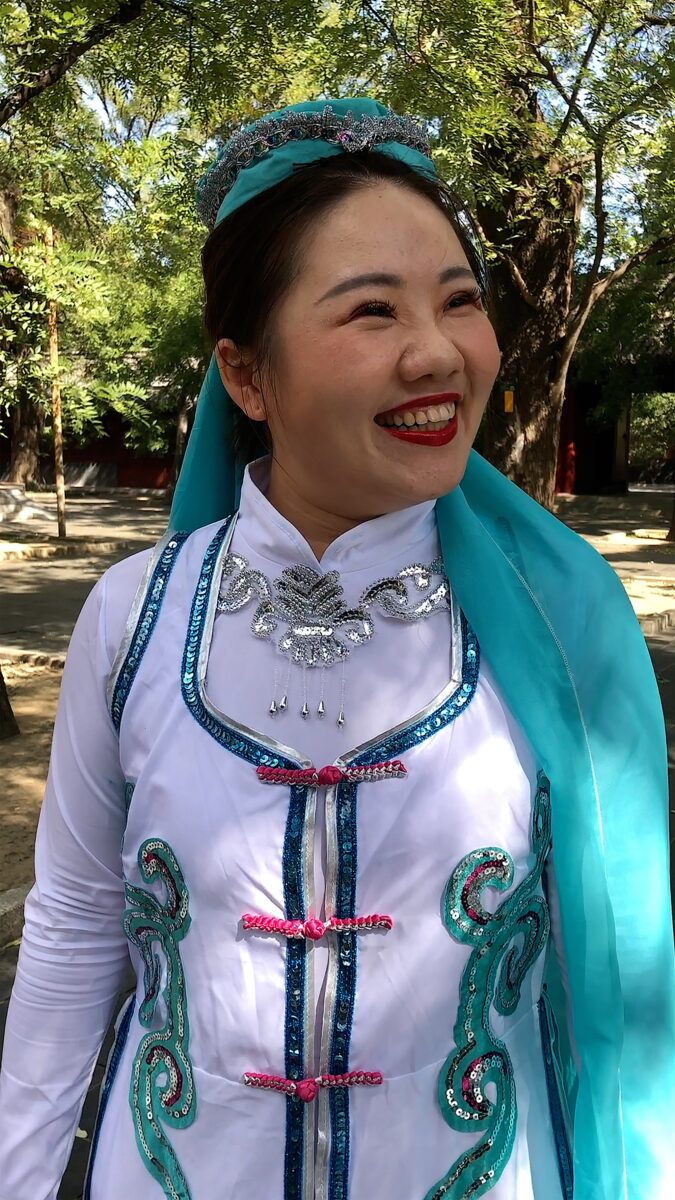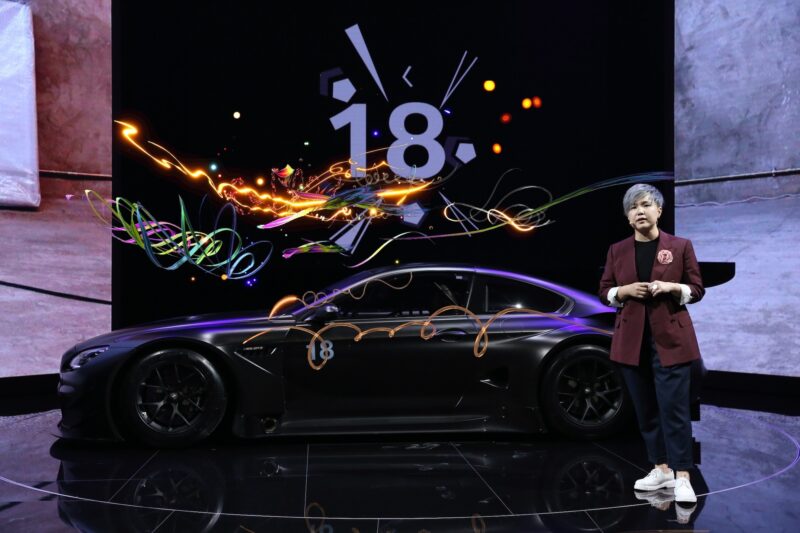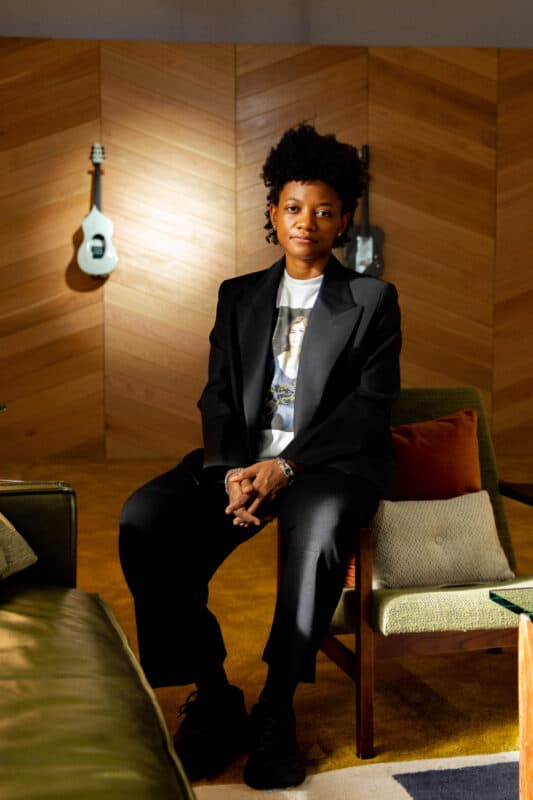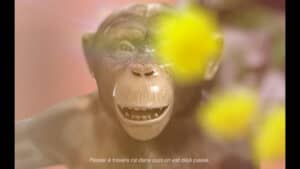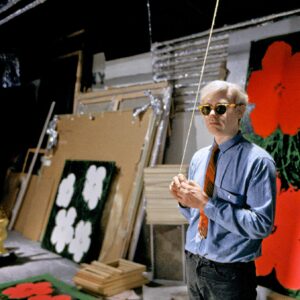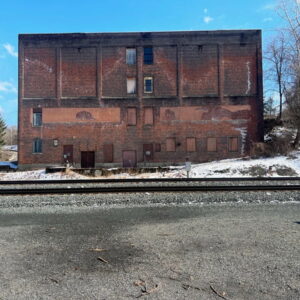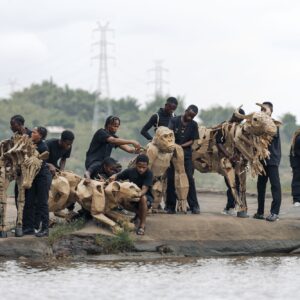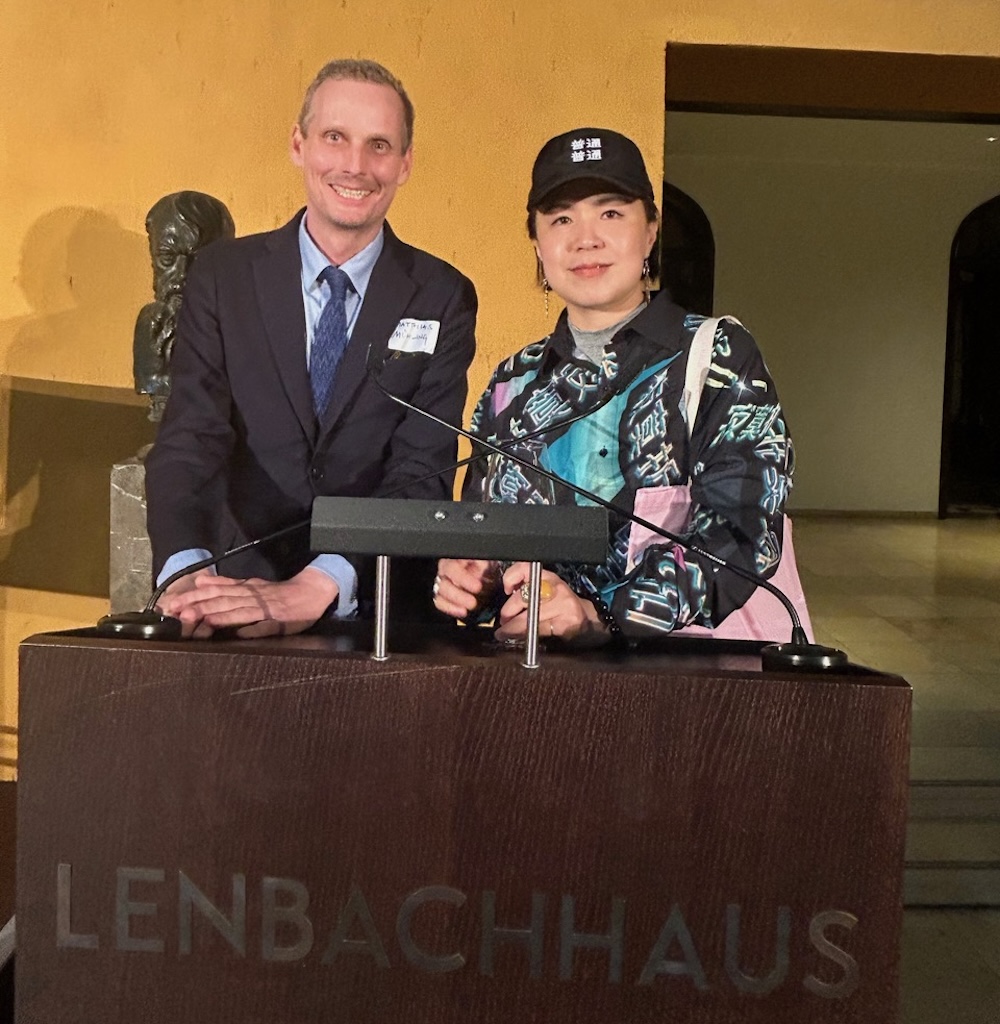
Chinese multi-media artist Cao Fei was guest of honour at the preview of Meta-Mentary, a major solo exhibition at Lenbachhaus in Munich. FAD contributor Lee Sharrock reviews the exhibition.
Cao Fei’s immersive exhibition Meta-Mentary takes visitors on a journey through a post-digital Metaverse, with references to Communism, China and Covid. Situating the installation in Lenbachaus’s subterranean exhibition space in the Munich Metro is a stroke of curatorial genius, which injects an atmosphere of a futuristic Metropolis to the experience, juxtaposing the Metaverse with contemporary life via a view of Urbanites journeying underground through a glass window at the end of the exhibition.
Cao Fei has transformed the Lenbachaus’s underground exhibition space into a Metaverse with her unique cinematic imagery and artistic vocabulary. One of the most celebrated pioneers of post-digital art, Fei’s multi-disciplinary practice is an ongoing exploration of the extent to which digital universes have become part of everyday life. The term “post-digital” was coined in the early 2000s and refers to the artistic exploration of how the digital world invades our everyday lives. Originating in the digital world, post-digital art appropriates its structures and characteristics.
“I’m concerned about the digital virtual world, but I also care about the real feelings of human beings.” Cao Fei
Meta-mentary, curated by Eva Huttenlauch, invites visitors on an intriguing immersive journey into a subterranean exhibition space transformed by Cao Fei’s cinematic imagery and artistic vocabulary. After entering the Lenbachaus’s underground gallery space from street level via an escalator, visitors arrive via a walkway into the world of Meta-mentary and are greeted by a giant Octopus and screens featuring an animated Avatar named ‘Oz’.
Cao Fei’s Octopus is named ‘Asia One Octopus’, a symbol of an intelligent human-machine being acting as a metaphor for our contemporary existence that oscillates between an organic human being living between the real world and the virtual world.
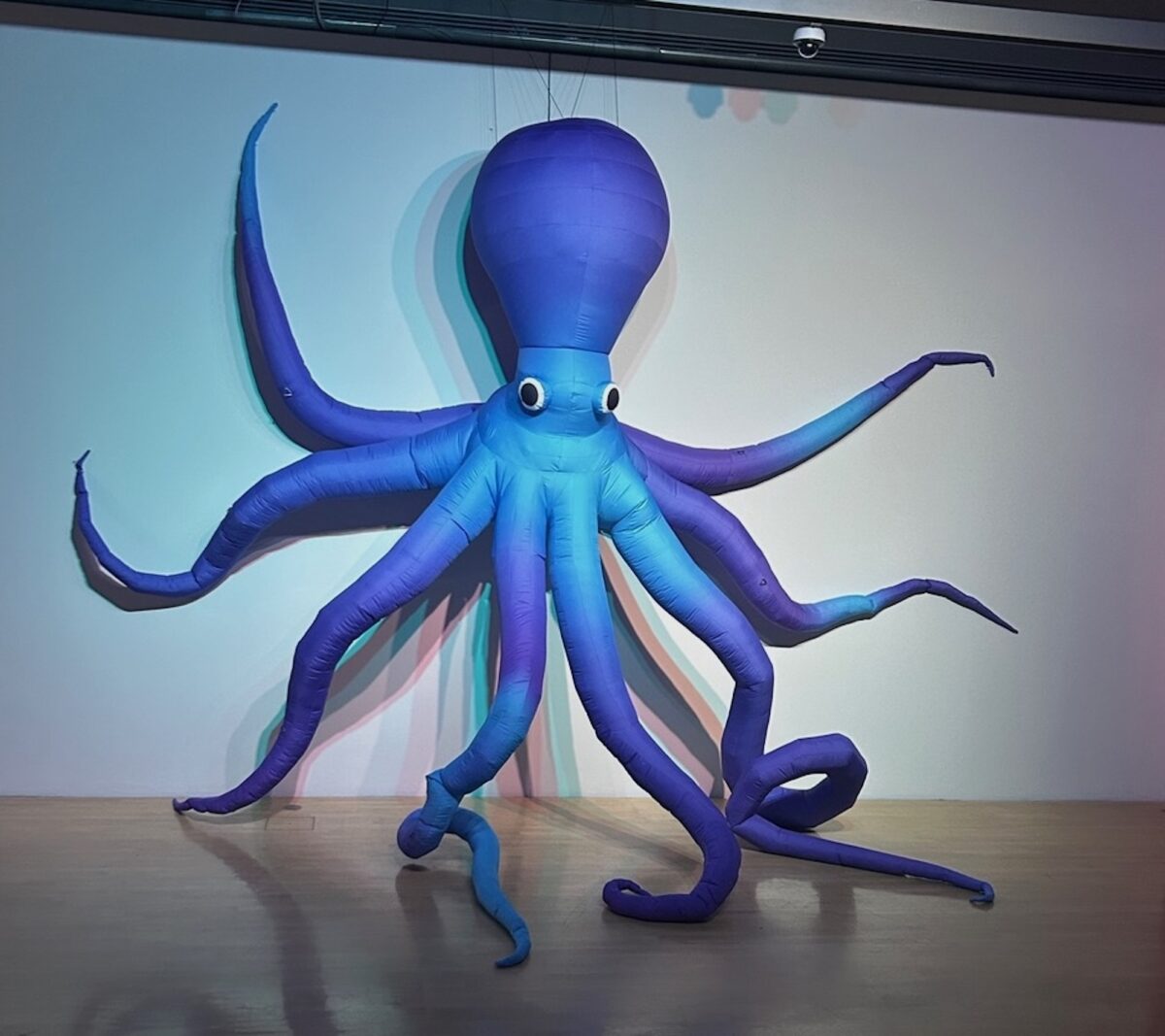
Cao Fei’s original avatar ‘China Tracy’ has been replaced by Oz, a more sinister human-Octopus hybrid with a gender fluid appearance. As the Avatar Oz, Cao Fei inhabits DUOTOPIA, her first architectural construction in the metaverse. DUOTOPIA derives from ‘Duo’, meaning ‘many’ in Mandarin.
Meta-mentary offers a rare chance to view Cao Fei’s Trilogy of films – A Holiday, Isle of Instability and Still Alive – made during the Covid pandemic when China’s ‘Zero-Covid’ policy led to an extended lockdown and subsequent home schooling, medical emergencies and financial struggles. During lockdown people dreamed of being outdoors or on holiday, and Cao Fei explores this sense of ‘Cabin Fever’ with visions of travel and a recreation of a campsite.
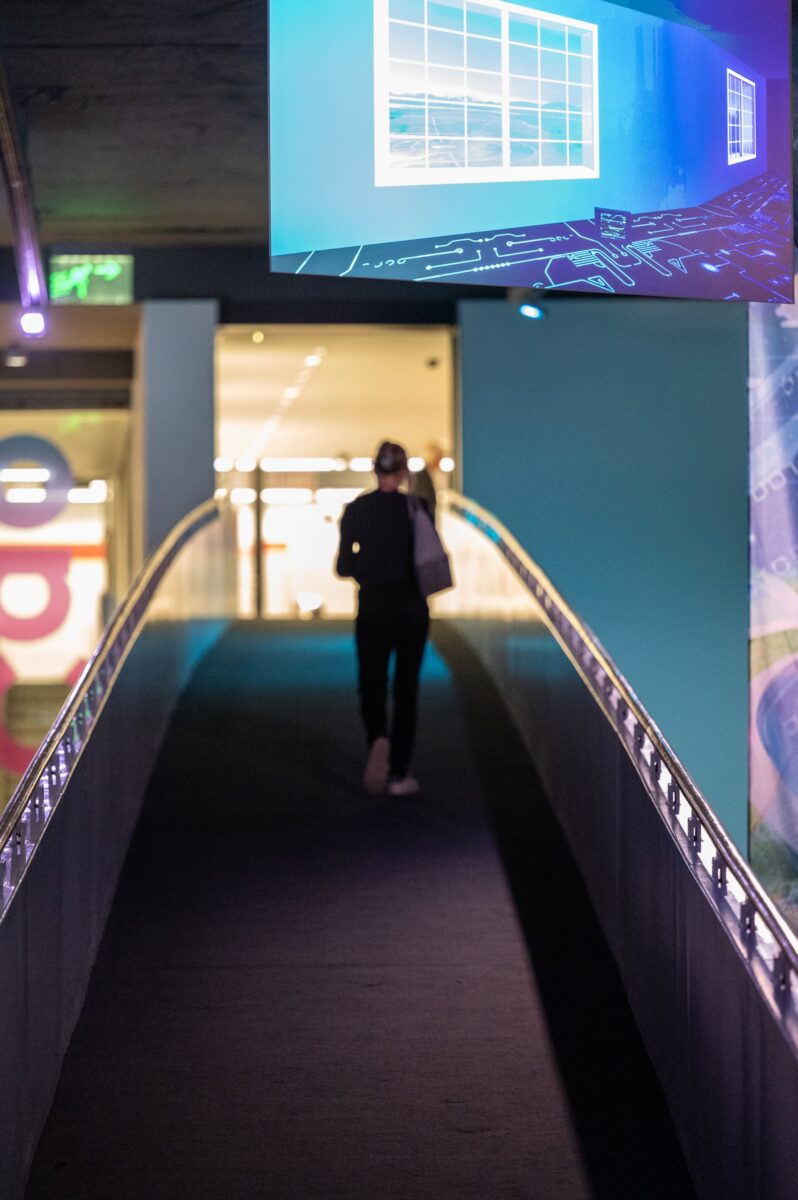
Also featured is one of Cao Fei’s seminal virtual artworks – the RMB City complex, created in 2006 in Second Life with her first Avatar, China Tracey.
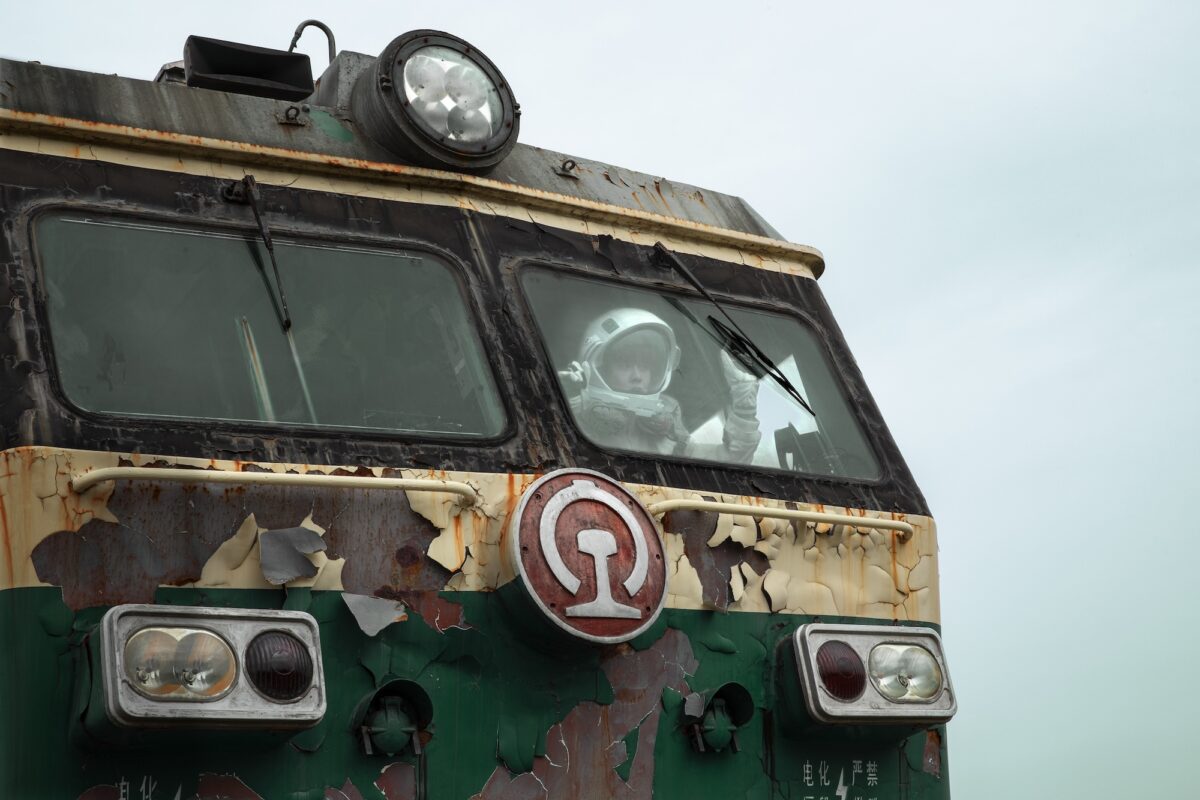
The final act of the exhibition is an exploration of Sino-Soviet relations between 1949 and 1990 through film, digital and documented elements. Cao Fei’s Matryoshka-Verse, Nova and Hongxia artworks reference the relationship between Communist China and Russia, who shared the longest land border in the world. Giant inflatable Matryoshka dolls are displayed near large screens showing Cao Fei’s surreal films.
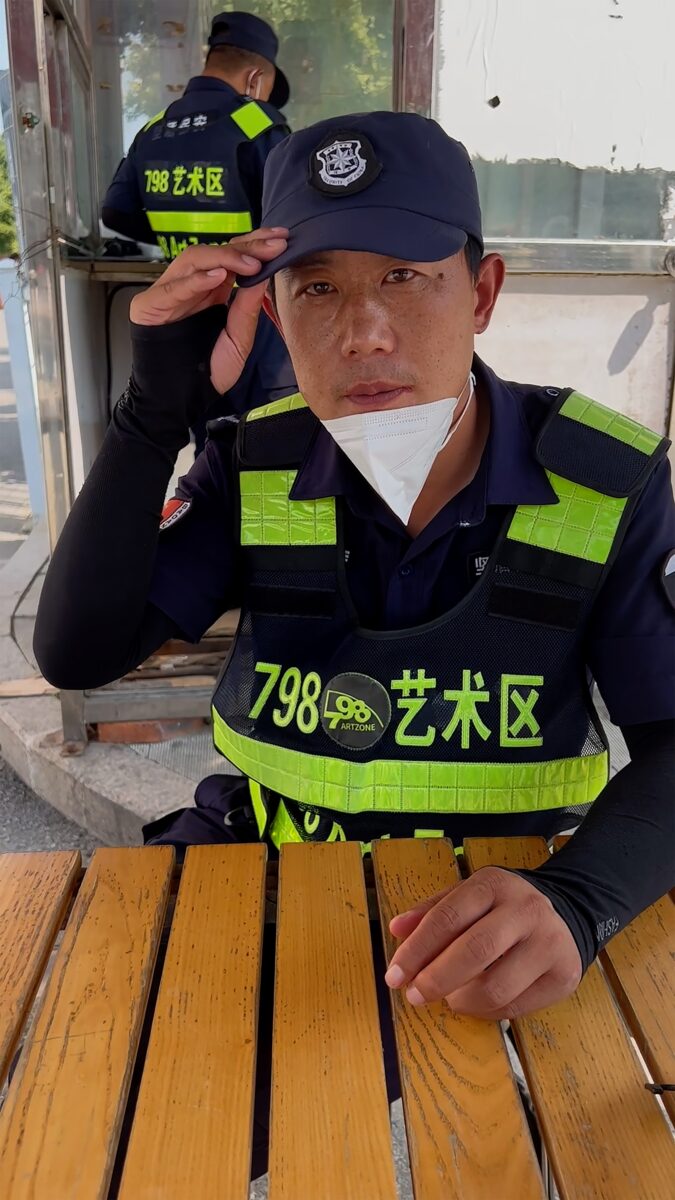
Cao Fei is interested in the emotional reaction of humans to a hyper-technologized and hyper-connected contemporary world, and Meta-Mentary explores how digitalisation and the Metaverse are affecting our sense of self and blurring the boundaries between reality and fantasy.
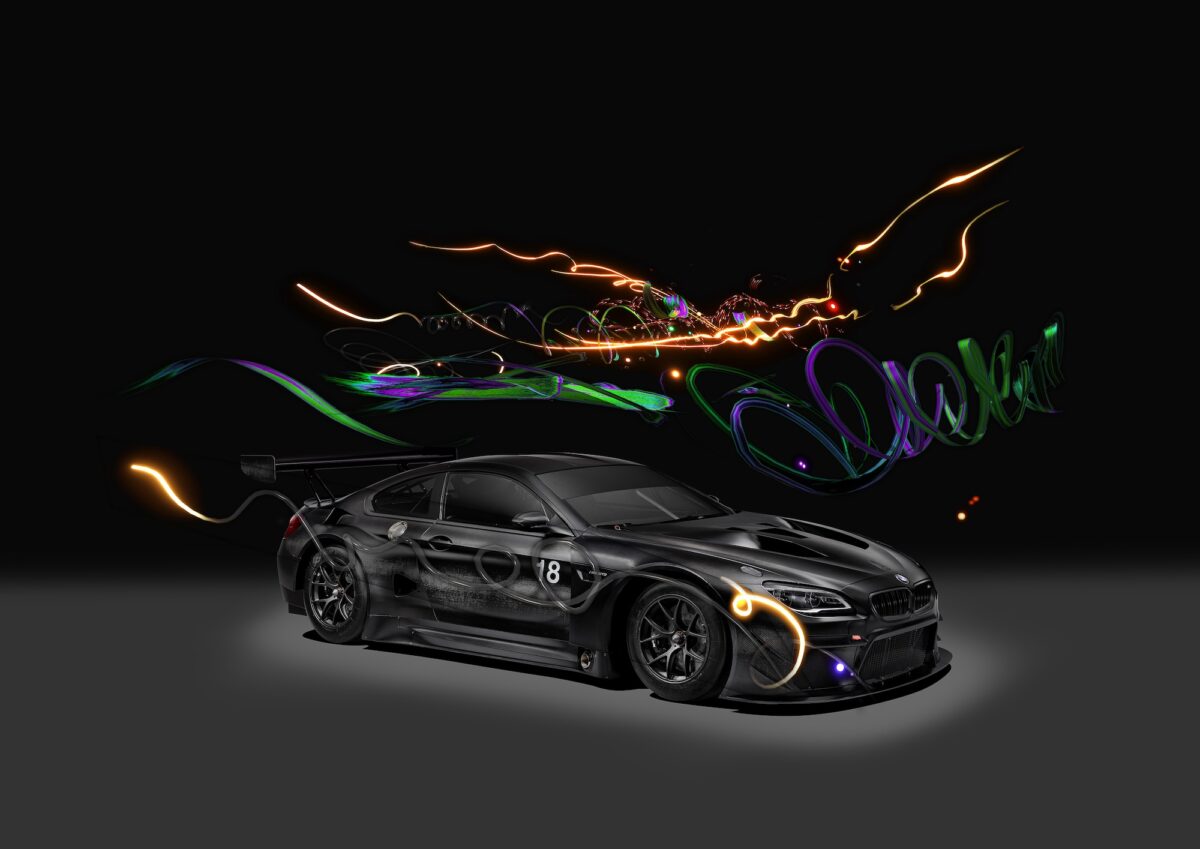
Cao Fei’s BMW Art #18, which was revealed at the Minsheng Art Museum in Beijing in May 2017, and raced in the FIA GT World Cup in Macau in November 2017, will be on display at the Lenbachaus from 23rd July as part of the Meta-Mentary exhibition.
Cao Fei “Meta-mentary”, April 13th – September 8th LENBACHHAUS
Cao Fei “Meta-mentary” is supported by the BMW Group with generous support of Förderverein Lenbachhaus e.V.
About the artist
Cao Fei was born in Guangzhou, China, in 1978, as the daughter of two artists. She graduated from the local state art academy in 2001. As a child of the Pearl River Delta, she grew up in an area of China that was a centre of rapid economic growth and urban development. Pop culture, computer games, consumer electronics and the latest technologies were her youth companions. She has lived and worked in Beijing since 2006. In her films, photographs and walk-in multimedia installations, Cao Fei deals with the economic and societal transformations of living conditions that affect her and all of us. Digitalization, globalization, the transformation of urban and suburban structures and hence our living environments are at the core of her artistic work. Her questions focus on the circumstances that shape our lives as humans, on how we react to the developments around us and adapt to them or actively incorporate them into our lives. Cao Fei’s works illustrate how we as humans cope with the beauty and at the same time the dangers of a technologized, globalized and hyper connected world and the physical and psychological effects it has on us; thereby touching and changing human experience and the perception of self at its core. For her work, the artist herself visits the virtual world using her avatars and she documents her perception and appropriation of virtual realities in a unique visual language creating distinctive artistic spaces. Her works oscillate between melancholy and humor, between utopia and dystopia, between beauty and horror.
Cao Fei’s art has been featured at numerous international exhibitions: Shanghai Biennale 2004, Moscow Biennale 2005, Taipei Biennale 2006, Sydney Biennale 2006 and 2010, Istanbul Biennale 2007, Yokohama Triennale 2008, Venice Biennale 2003, 2007 and 2015. Selected solo exhibitions: MoMA PS1, New York, 2016; Tai Kwun Contemporary, Hong Kong, 2018; K21, Düsseldorf, 2018; Centre Pompidou, Paris, 2019; Serpentine Galleries, London, 2020; UCCA Center for Contemporary Art, Beijing, 2021; MAXXI Museo nazionale delle arti del XXI secolo, Rome, 2021; Pinacoteca de São Paolo 2023. In 2024 she was awarded the SCAD deFINE ART prize.
